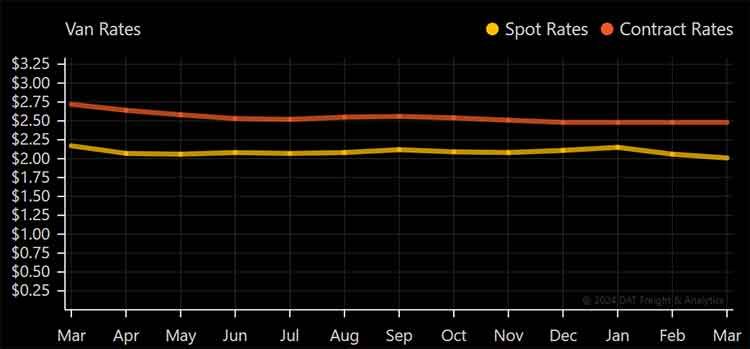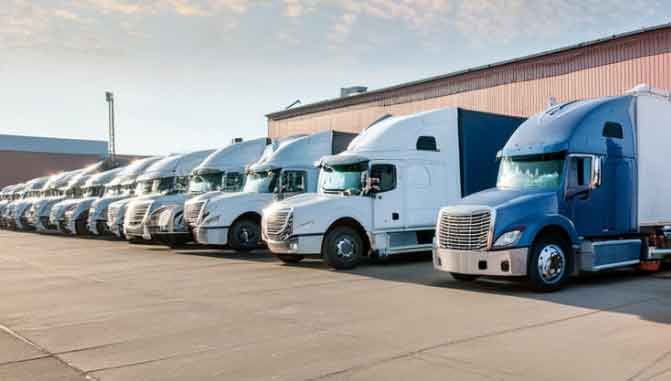Freight Rate Agreement
Freight Rate Agreement
A freight contract encompasses any form of executable task, with a corresponding expectation of the scope of work. Each engagement in the tender market necessitates a contract upon the acceptance of the load. Technically, every final freight bill constitutes a contract, establishing criteria for settlement. Given this expansive interpretation of contracts, it's understandable why companies often feel inundated, even the bill of lading is viewed as a contract. Nevertheless, the various types of freight contracts can be condensed into these seven categories:

What are the contract rates for freight?
Typically, contract rates are influenced by factors such as fuel prices, zip code pairs, shortages in driver availability, and prevailing economic conditions. For short-haul routes spanning less than 100 miles, rates may fall within the range of $2 to $4 per mile, whereas long-haul routes exceeding 1,000 miles might command rates ranging from $2.00 to $2.75 per mile.

What is a rate agreement?
A contract rate refers to an agreed-upon rate between a shipper and a logistics provider for a designated route and timeframe, typically spanning from three months to two years. These rates are typically determined by considering the shipper's projected freight volume and the provider's cost per mile. Two of the most common rate agreements fall under
spot rates vs contract freight rates.
What is a spot rate?
A spot rate is a single-time rate influenced by factors such as supply and demand or the balance between shipment volume and available equipment. As spot rates reflect current market dynamics, they undergo continuous fluctuations, sometimes changing on an hourly basis. Consequently, when there is low load volume and surplus capacity, prices tend to decrease. Conversely, during periods of high load volume and limited capacity, prices tend to rise.
TLI can easily hold carriers accountable through freight bill audit mitigation on contract rates. However, due to the volatility of spot market rates, it is crucial to collaborate with TLI and utilize the Transportation Management System. This system records the booked rate of the load and cross-checks it against the carrier's invoice during auditing, ensuring that you do not overpay.

What rate agreement should I use?
When deciding between spot rates and contract rates for your freight transportation needs, neither option is inherently superior — the choice depends on your specific circumstances.
If your shipments are regular and follow predictable routes (including during peak seasons), opting for contract rates is typically more advantageous. Contract rates provide stability by locking in capacity and ensuring consistent pricing.
Conversely, if you have a low volume of shipments, encounter irregular loads and routes, or face sudden needs (e.g., during emergencies), utilizing spot rates may be more suitable. Spot rates offer flexibility in addressing supply chain disruptions promptly by swiftly filling gaps to keep your freight moving.
For businesses requiring consistent shipping and reliable service, contract rates are the preferred option. In such cases, it's advisable to request TLI to initiate a transportation RFP (Request for Proposal) on your behalf.
7 Types of Freight Contracts
The seven
types of contracts encompass: Broker Carrier Agreement, Load Tender and Confirmation, Rate Confirmation, Accessorials, Bill of Lading, Load Board Contracts, and the final contracts which involve the of-choice designation. By clicking on the corresponding link, you can delve deeper into understanding each contract.

Broker Carrier Agreement
The significance of the broker carrier agreement is paramount when a broker posts a load and proposes a specific rate. Once accepted, this agreement is formalized. It entails the generation of pertinent freight data, including liability, insurance, settlement procedures, and the date of agreement execution.
Load Tender and Confirmation
The load tender encompasses all the specifics concerning the shipment and is chiefly utilized by the carrier. Nevertheless, the load tender and confirmation process normally will involve an intermediary, such as the freight broker.
Rate Confirmation
The freight rate confirmation serves as an agreement among the shipper, any third-party provider involved, if applicable, and the carrier, outlining the rates for the shipment. Prior to pick-up, all freight brokers are required to furnish rate confirmations to carriers. This essential step aids in preventing billing discrepancies and surprises.
Shipping Accessorials
At times, the freight rate may not comprehensively cover all expenses. This is where accessorials become relevant. These refer to additional payments agreed upon by the shipper, acknowledging that the carrier will use discretion to implement changes and levy such additional charges. For instance, additional fees for extra equipment, handling, or peak surcharges may apply.
Bill of Lading
The bill of lading serves as the receipt for the delivery of freight by a carrier to the consignee (driver). It includes all essential information and rate data required to facilitate transportation.
Load Board Contracts
Load board contracts diverge slightly from typical agreements. While they follow a process akin to a broker carrier agreement, they might incorporate additional stipulations or prerequisites for accessing and utilizing the load board.

Incoterms impact on contracts
Understanding Incoterms is crucial in comprehending freight contracts. As elucidated by the International Trade Administration, the 11 Incoterms are "a set of internationally recognized rules that delineate the responsibilities of sellers and buyers." Incoterms specify the parties responsible for payment and management of aspects such as shipment, insurance, documentation, customs clearance, and other logistical activities.
These rules encompass:
- EXW – Ex Works (insert place of delivery)
- FCA – Free Carrier (insert named place of delivery)
- CPT – Carriage Paid to (insert named place of destination)
- CIP – Carriage and Insurance Paid To (insert named place of destination)
- DAP –– Delivered at Place (insert named place of destination)
- DPU – Delivered at Place Unloaded (insert named place of destination)
- DDP –– Delivered Duty Paid (insert named place of destination)
- FAS –– Free Alongside Ship (insert named port of loading)
- FOB – Free on Board (insert named port of loading)
- CFR – Cost and Freight (insert named port of destination)
- CIF – Cost Insurance and Freight (insert named port of destination)
Incoterms avoid ambiguity and ensure all
freight management parties know who is responsible for freight at each stage of scheduling, transfer, and contract management.
TLI Insights
Get the latest logistics insights and tips from TLI's award-winning team. Stay ahead in transportation planning.
Questions? Email us at marketing@shiptli.com



